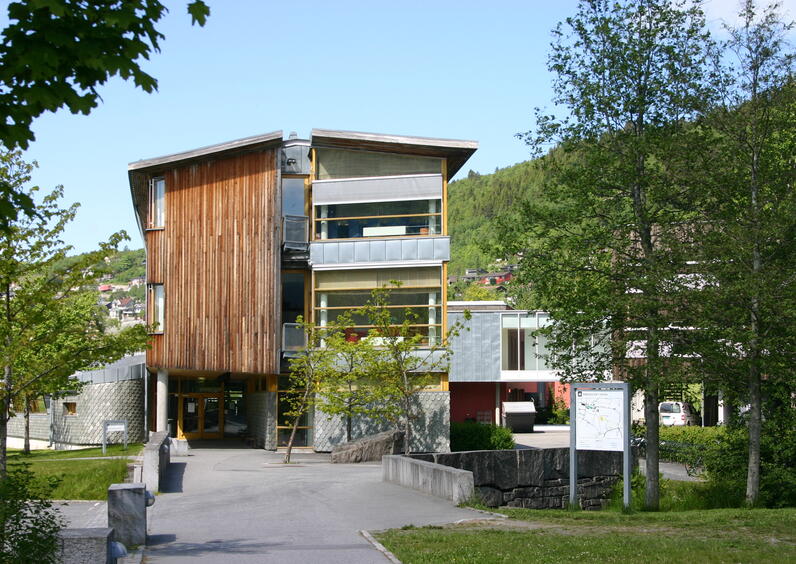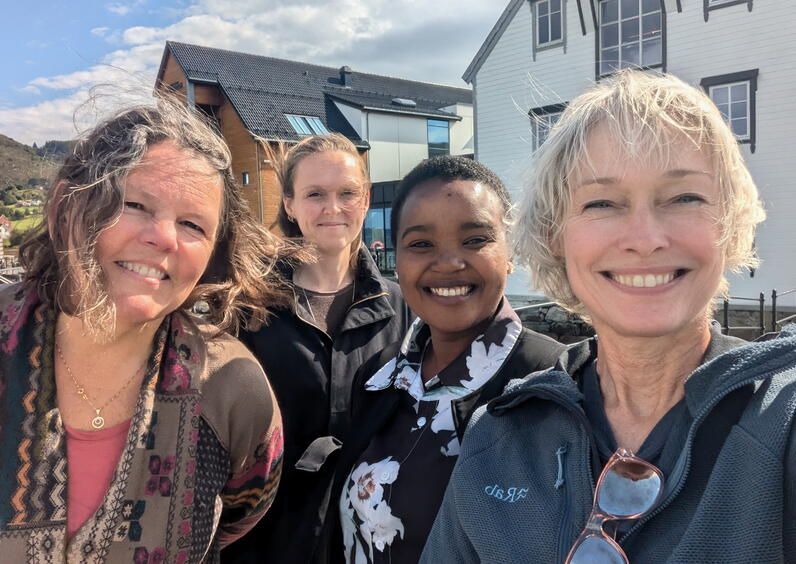In Portugal to learn about the EU
– It is ok to see the sums of money from the EU on paper, but much more instructive to see what they are physically used for, says Rebekka Schubert. She was one of the students who got to experience how the EU's policies are practiced and their impact on a member country.

– It is ok to see the sums of money from the EU on paper, but much more instructive to see what they are physically used for, says Rebekka Schubert. She was one of the students who got to experience how the EU's policies are practiced and their impact on a member country.
Through the course The European Union and Regional development: theories and practice, a group of students who went last year on the Bachelor's degree Planning and Administration, together with international students, traveled to Portugal under the guidance of Professor Nathalie Homlong and Associate Professor Margit Ystanes.
Got to see a lot
For four days with a content-rich program, the students visited various companies, a research center and a collaborative university of the Volda University College in Lisbon. In addition to visiting the capital of Portugal, the traveling companion also saw seven smaller urban areas and visited regions with economic challenges.
– One part of the aim of the trip was to see what the EU does for such regions in its member states. What measures have they taken in and what implications it has for business and not least the people who live there, Homlong says.
Big difference
The fishing nation of Portugal, in the same way as Norway, researches what lives in the sea. The Volda students visited a maritime research center, and despite the support from the EU, saw that conditions were different than at home.
– They do not have the same financial means to develop as good conditions for researchers as they have in Norway. The equipment is a pretty big distinction, says Flingai Foloboi, one of the students who participated in the trip.
The Algarve district was one of the destinations for travel – a district where tourism is the livelihood of many. – We were at a factory that produced cork, but also it was quite seasonal and kept it mostly going in the summer, says student Trond Fredrik Hoddevik. This was something the students got to see that was normal in this part of Portugal, in winter there is less work for the inhabitants – something that has not been particularly reversed after the country became an EU member in 1986.
Important through the financial crisis
The support from the EU was clear that some residents appreciate, according to Hoddevik. – You could see that those who showed us around their companies were proud to have an EU plaque on the wall – as a symbol of European Union support.
The benefit of such a union was particularly noticeable when the financial crisis hit hardest over ten years ago. Portugal was one of the countries in Europe that needed the most financial support to get back on track. – At that time, the EU funds were very important for Portugal, which was hit hard. Much of the business sector in the country had not survived without EU support, Foloboi explains.
Social trips abroad
This is a tour that Professor Homlong has organized over the past few years and which has proved popular among students. This year, it reached new heights when the traveling party reached 26 people. Previously, one has visited countries such as Italy, the Czech Republic, Greece, Latvia, Austria, Hungary and Slovakia. Portugal was not a bad choice, according to the students:
– We got to see a lot of what we learn about the subject in practice, I liked that. The social part I also really appreciate - perhaps especially socializing with the Norwegian students, says German Rebekka Schubert.
– The evenings were nice to have us look around, for example in Lisbon. In addition, we also had time for a lot of good talk, smiles Hoddevik, before Foloboi ends with a well-deserved boast to the teachers:
– They were good to guide us and find the way. I will never forget this trip.






